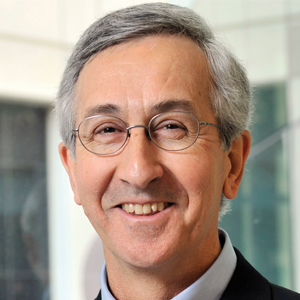JBC/Tabor award winners to speak at annual meeting
Winners of the 2020 Journal of Biological Chemistry/Herbert Tabor Early Career Investigator Awards will give talks on April 5 at the American Society for Biochemistry and Molecular Biology Annual Meeting in San Diego.
The 2020 JBC Herbert Tabor Early Career Investigator Award winners will present their work at the 2021 ASBMB Annual Meeting, 1:45–3 p.m., Tuesday, April 27.
Find out about registering for the annual meeting here.
The awards, named for Herb Tabor, who served as JBC’s editor-in-chief from 1971 to 2012, recognize early-career first authors of standout JBC papers published the previous year for their creativity and scientific excellence.
After carefully reviewing nominations from JBC readership, consulting experts in the field and evaluating the quantitative impact of the papers, a committee of JBC associate editors selected six award-winning first authors.
“We are very pleased to celebrate these early-career investigators who have authored top-notch papers in JBC that report exciting and significant research,” said Lila Gierasch, distinguished professor at the University of Massachusetts Amherst and editor-in-chief of JBC. “These awardees are outstanding representatives of the future leaders of biological chemistry.”
At the ASBMB annual meeting, five of the six award winners will give talks about their research findings, which span a diverse array of topics within biological chemistry. Click the links below to read profiles of those five winners.
The JBC/Tabor award winners

- Kirstine Lavrsen, a postdoctoral researcher with the Danish Cancer Society in Copenhagen, identified an enzyme that converts normal colon into cancerous tissue by attaching sugar to certain cellular proteins.
- Wenchao Zhao, a graduate student at the Institute Rheinische Friedrich-Wilhelms-Universität Bonn, developed animal models to reveal how missense mutations of a protein result in pathology.
- Yue Yang was a graduate student at Weill Cornell Medical School when she discovered that dihydronicotinamide riboside is a critical regulator of the cellular concentration of NAD+.
- Manisha Dagar, a graduate student at Amity University Haryana, India, discovered that phosphorylation of HSP90 by protein kinase A is essential for the nuclear translocation of androgen receptor.
- Febin Varghese was a graduate student at Imperial College London when he discovered the molecular mechanism by which a bacterial oxidase functions via its interaction with another enzyme.
- Ayumi Nagashima-Kasahara was a postdoctoral scientist at the University of Tokyo when she identified a transcriptional co-repressor that plays a key role in sensing and mediating volatile organic compound signals in plant cells. Nagashima-Kasahara is on maternity leave and will present her work at the 2021 ASBMB annual meeting in Indianapolis.
Enjoy reading ASBMB Today?
Become a member to receive the print edition four times a year and the digital edition monthly.
Learn moreGet the latest from ASBMB Today
Enter your email address, and we’ll send you a weekly email with recent articles, interviews and more.
Latest in People
People highlights or most popular articles

2026 ASBMB election results
Meet the new Council members and Nominating Committee member.

Simcox wins SACNAS mentorship award
She was recognized for her sustained excellence in mentorship and was honored at SACNAS’ 2025 National Conference.

From humble beginnings to unlocking lysosomal secrets
Monther Abu–Remaileh will receive the ASBMB’s 2026 Walter A. Shaw Young Investigator Award in Lipid Research at the ASBMB Annual Meeting, March 7-10 in Washington, D.C.

Chemistry meets biology to thwart parasites
Margaret Phillips will receive the Alice and C. C. Wang Award in Molecular Parasitology at the ASBMB Annual Meeting, March 7-10 in Washington, D.C.

ASBMB announces 2026 JBC/Tabor awardees
The seven awardees are first authors of outstanding papers published in 2025 in the Journal of Biological Chemistry.

Decoding how bacteria flip host’s molecular switches
Kim Orth will receive the Earl and Thressa Stadtman Distinguished Scientists Award at the ASBMB Annual Meeting, March 7–10, just outside of Washington, D.C.

